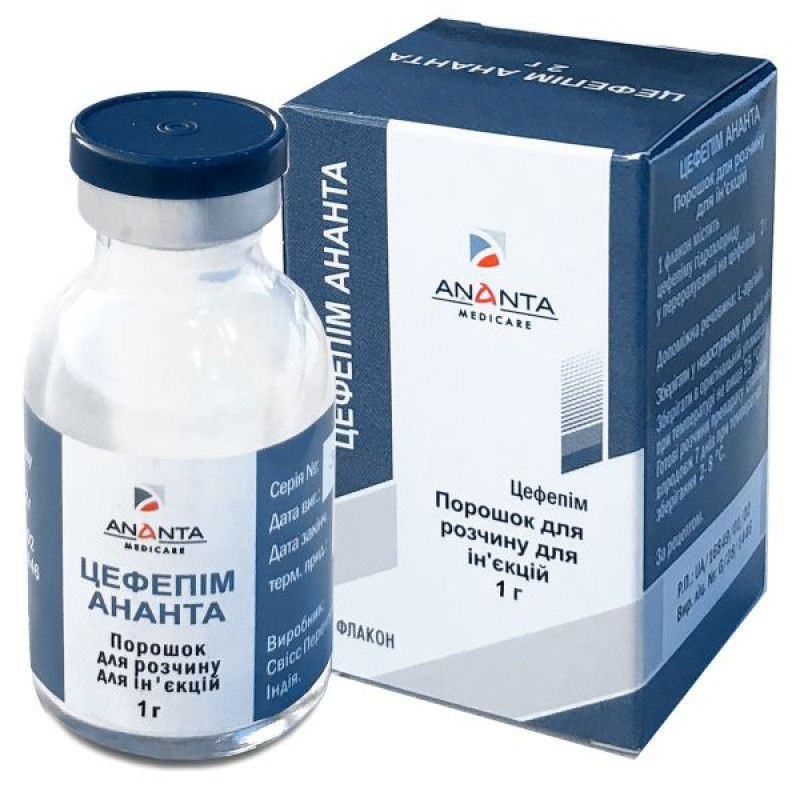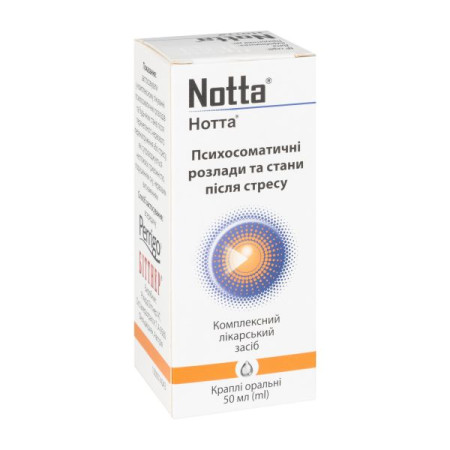Cefepime Ananta powder for solution for injection 1 g vial No. 1

Powder for solution for injection "Cefepime Ananta" is used for the indications listed below.
Adults (infections caused by microflora sensitive to the drug):
Respiratory tract infections, including pneumonia; uncomplicated skin and subcutaneous tissue infections; complicated intra-abdominal infections (used in combination with metronidazole); uncomplicated and complicated urinary tract infections (including pyelonephritis); septicemia; empirical therapy of patients with neutropenic fever; prevention of postoperative complications in intra-abdominal surgery.children:
pneumonia; urinary tract infections, including pyelonephritis; skin and subcutaneous tissue infections; empirical therapy of patients with neutropenic fever; bacterial meningitis.Composition
Active ingredient: cefepime (1 vial contains cefepime hydrochloride equivalent to cefepime 1 g).
The excipient is L-arginine.
Contraindication
Hypersensitivity to cefepime or arginine, as well as to cephalosporin class antibiotics, penicillins or other β-lactam antibiotics.
Method of application
Before using the drug, a skin test for tolerance must be performed.
The usual adult dose is 1 g administered intravenously or intramuscularly every 12 hours. The usual duration of treatment is 7-10 days; severe infections may require longer treatment.
However, the dosage and route of administration vary depending on the sensitivity of the causative microorganisms, the severity of the infection, and the functional state of the patient's kidneys.
An introductory part of the instructions is provided, read the full instructions inside the package.
Application features
Pregnant women
Animal studies have shown no effect on reproductive function and no harmful effects on the fetus, however, adequate and well-controlled studies in pregnant women have not been conducted, therefore cefepime should be prescribed during pregnancy only if the expected benefit to the mother outweighs the potential risk to the fetus.
Cefepime passes into breast milk in small amounts, so breastfeeding should be discontinued during treatment with the drug.
Children
The drug should be used in children from 1 month of age.
When using lidocaine as a solvent, the safety information for lidocaine should be considered.
When prescribing the drug to children aged 1 month and older, the doctor should carefully assess the dose depending on age, weight, severity and type of infection; kidney function status.
Drivers
Since adverse reactions from the central nervous system may occur during treatment, you should refrain from driving or operating machinery.
Overdose
Symptoms
In case of significant excess of the recommended doses, especially in patients with impaired renal function, the manifestations of side effects are enhanced. Symptoms of overdose include encephalopathy, accompanied by hallucinations, impaired consciousness, stupor, coma, myoclonus, epileptiform seizures, neuromuscular excitability.
Treatment
The drug should be discontinued and symptomatic therapy should be administered. Hemodialysis accelerates the removal of cefepime from the body; peritoneal dialysis is ineffective. Severe immediate-type allergic reactions require the use of adrenaline and other forms of intensive therapy.
Side effects
Adverse reactions are rare.
Storage conditions
Store in the original packaging at a temperature not exceeding 25 °C, out of the reach of children.
Ready-made solutions of the drug are stable for 7 days at a storage temperature of 2-8 °C.
Shelf life - 2 years.
There are no reviews for this product.
There are no reviews for this product, be the first to leave your review.
No questions about this product, be the first and ask your question.






